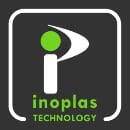FAQ’s
Find out more about plastic injection mouldings in the UK. Inoplas Technology Limited can help with all of your plastic moulding and overmoulding requirements.
What is injection moulding?
That’s a fair question and many of our customers do not have prior experience of the moulding process.
In summary, an injection moulding machine (press) uses a screw-type plunger to force molten plastic material into a mould cavity. The mould (tool) itself is generally made from hardened steel and is bespoke to the part being made so we design each tool to fit one of our range of 24 moulding machines depending on size and complexity. For anything beyond that give us a call and speak to one of our engineers – they don’t bite.
Is injection moulding the right process for my product?
Most of the plastic materials you see around you will have been injection moulded although extrusion and vacuum forming are used in some applications. Once we have made a tool we can make 1 item or millions of beautiful, consistent parts.
Isn't the tooling cost prohibitive?
That’s a common misconception and we are masters of keeping the costs down wherever possible. We always seek to understand the project so that we can help to specify the most cost effective solution and we have some innovative ideas to support customers at the prototype stage whilst avoiding the false economies. It is true that the costs will tend to grow with the complexity of the component but a well-designed and commercially viable project will justify investment in well-made tools with the accuracy and lifespan to make sure you get the product you need.
What type of information is required for quoting a project?
We can start with whatever you have got. Annual usage, an existing part, performance requirements, CAD or 2d drawings are all a good start. We are happy to sign an NDA if necessary so that you can discuss a project more freely with us. The best start is often for your engineers to visit us and go through the requirements over a cup of tea.
What is the typical process for a new project?
- Discussion around design and application (Firm up DFMA)
- Quote both for tooling and per part (normally within 3-4 days after we agree what you need)
- Make tools and procure material (normally 4-12 weeks dependant on complexity)
- Set up Quality Documentation, Method sheets, Jigs and fixtures as required
- Sample, measure and document as required for customer approval
- Commence production
What part size limitations do you have?
Our projected area limit is 400 cm² in PP (polypropylene) whereas glass filled nylon halves that value. The heaviest parts we can make weigh around 450g.
What material should I use for my project?
Obviously a fundamental part of the process and one we are able to advise on. There are a huge number of variables including durability, temperature range, surface finish, water resistance, colour, clarity and, of course, cost. We have experience of working with most thermoplastics and are happy to share it.
